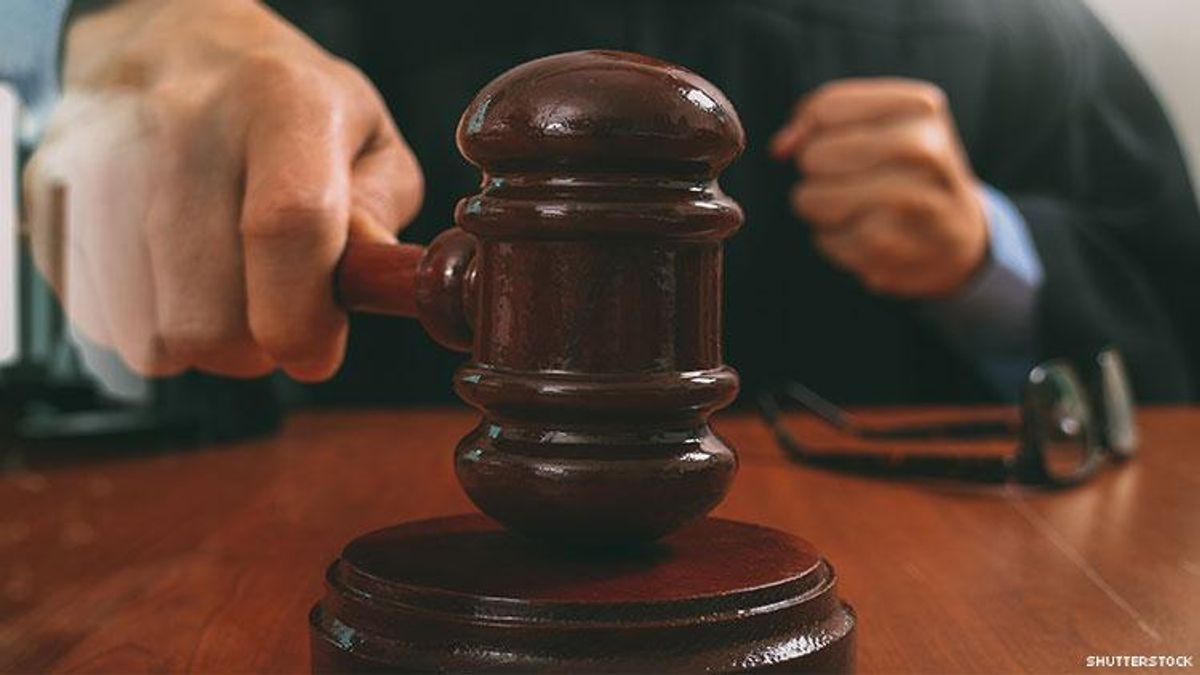A federal judge has struck down Tampa, Fla.'s ordinance banning the use of conversion therapy on minors.
In his ruling Friday, U.S. District Judge William Jung said states rather than cities should regulate health care, the Tampa Bay Times reports. He also said the ban may interfere with patients' rights to privacy and parents' rights to choose health care for their children.
The ordinance, passed in 2017, prohibited state-licensed professionals from providing conversion therapy, designed to turn LGBTQ people straight or cisgender, on people under 18 within the city. It called for a fine of $1,000 for a practitioner's first violation of the ordinance and $5,000 for any subsequent violations. It did not apply to clergy members or other providers of faith-based counseling, as long as they were not practicing under a state license.
It was challenged by Robert Vazzo, a marriage and family therapist, and New Hearts Outreach Tampa Bay, a Christian ministry. They were represented by Liberty Counsel, an anti-LGBTQ legal nonprofit.
A federal magistrate judge, Amanda Arnold Sansone, had issued a preliminary injunction in January blocking enforcement of the ordinance against providers of talk therapy, but she allowed enforcement against anyone who uses physically abusive techniques such as electroshock therapy -- something that was once used extensively in efforts to change a patient's sexuality and in other types of psychiatric treatment but is now rare.
In Friday's ruling, Jung stated that Florida law already "restricts certain dangerous psychiatric procedures such as electroconvulsive and psychosurgical procedures," not just in conversion therapy but for any purpose. Also, he wrote, the Tampa law doesn't differentiate between those techniques and talk therapy, and he was not convinced talk therapy designed to change gender or sexuality was harmful.
"No known study ... has provided a comprehensive assessment of basic demographic information, psychosocial wellbeing, and religiosity, which would be required to understand the effectiveness, benefits and/or harm" caused by conversion therapy, Jung wrote. He made that statement even though every major medical and mental health organization in the U.S. has condemned such therapy as harmful and ineffective, studies have found it heightens the risk of suicide, and 18 states have banned its use on minors, as have many cities and counties. Florida is not among those states.
Liberty Counsel's clients had alleged that the ordinance violated their free speech rights, but Jung's ruling did not address that issue because he found that state law preempted the ordinance in any case. He did, however, write that the ordinance could interfere with patient privacy and parental rights, and that if other municipalities adopted similar laws, it could create a patchwork of regulations across Florida.
Statewide LGBTQ organization Equality Florida denounced the ruling. "This is a dangerous decision that puts some of our most vulnerable young people at risk," Jon Harris Maurer, Equality Florida's director of public policy, said in a press release. "The decision stands completely alone in its reasoning. Regardless of this decision, experts agree that conversion therapy is a dangerous and sometimes deadly practice, and we know it is still routinely practiced on children and teens in Florida. We support the city of Tampa's leadership in protecting minors, and the Florida legislature can and should also act immediately to protect children from this fraudulent practice."
Tampa's ordinance was modeled on that of another Florida city, Boca Raton, which has withstood a court challenge, Tampa City Attorney Gina Grimes told the Times. She said Tampa may appeal the ruling, but city officials want to get input from their outside lawyers before making a decision about that.
Liberty Counsel is also behind a lawsuit challenging Maryland's conversion therapy ban. New York City recently decided to repeal its ban because of a legal challenge by another anti-LGBTQ group, the Alliance Defending Freedom, but there is a state-level ban in New York.


















































































